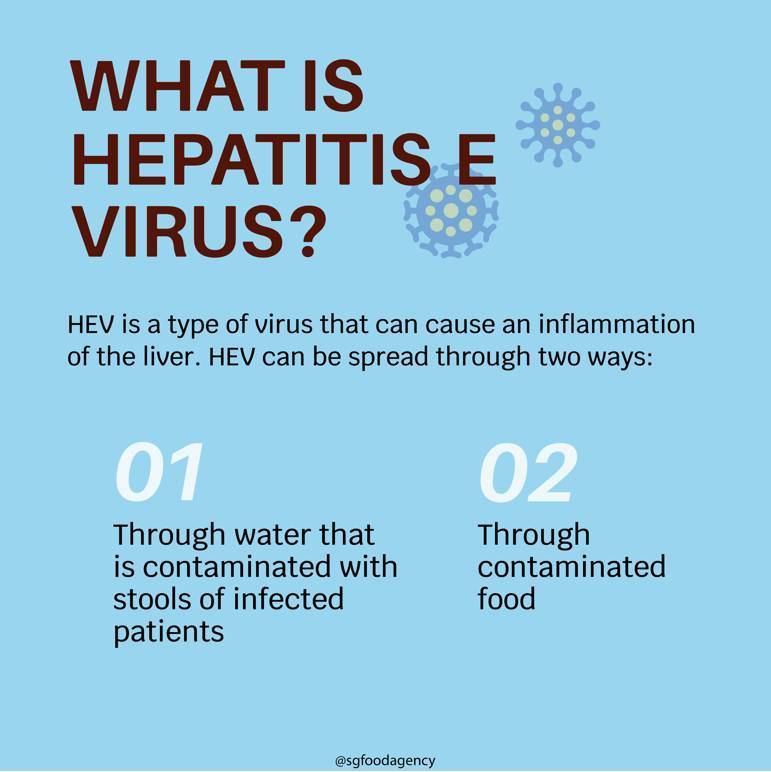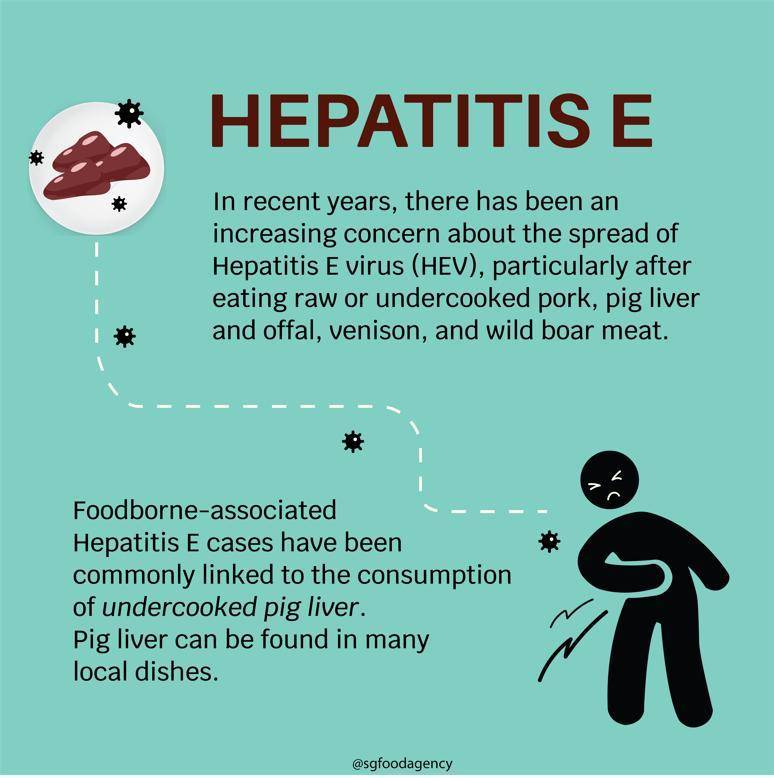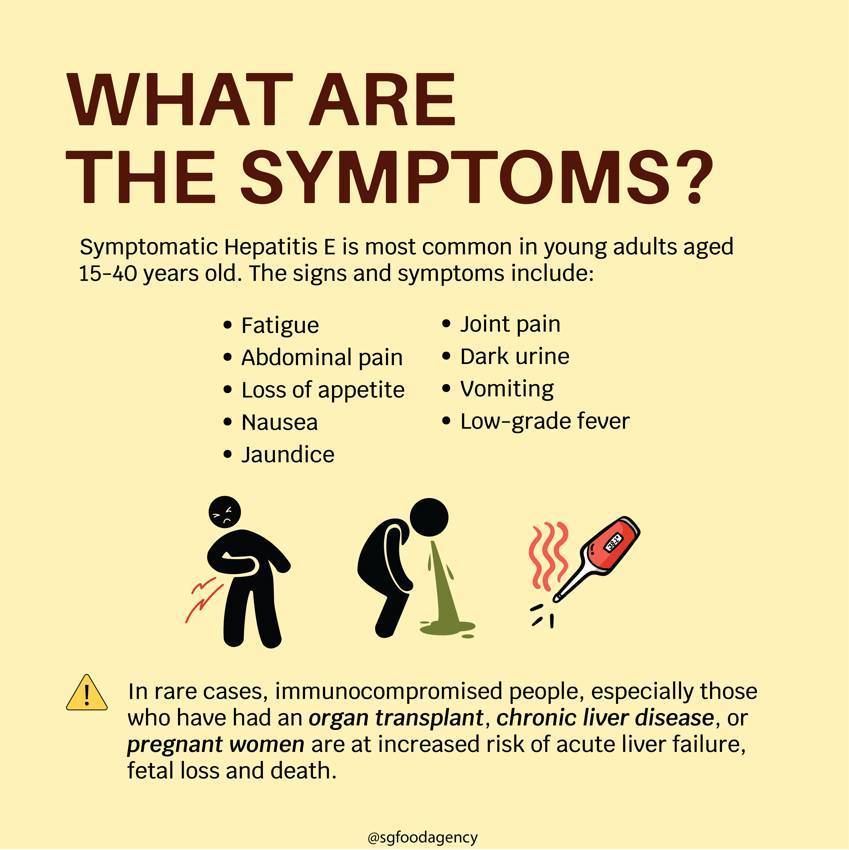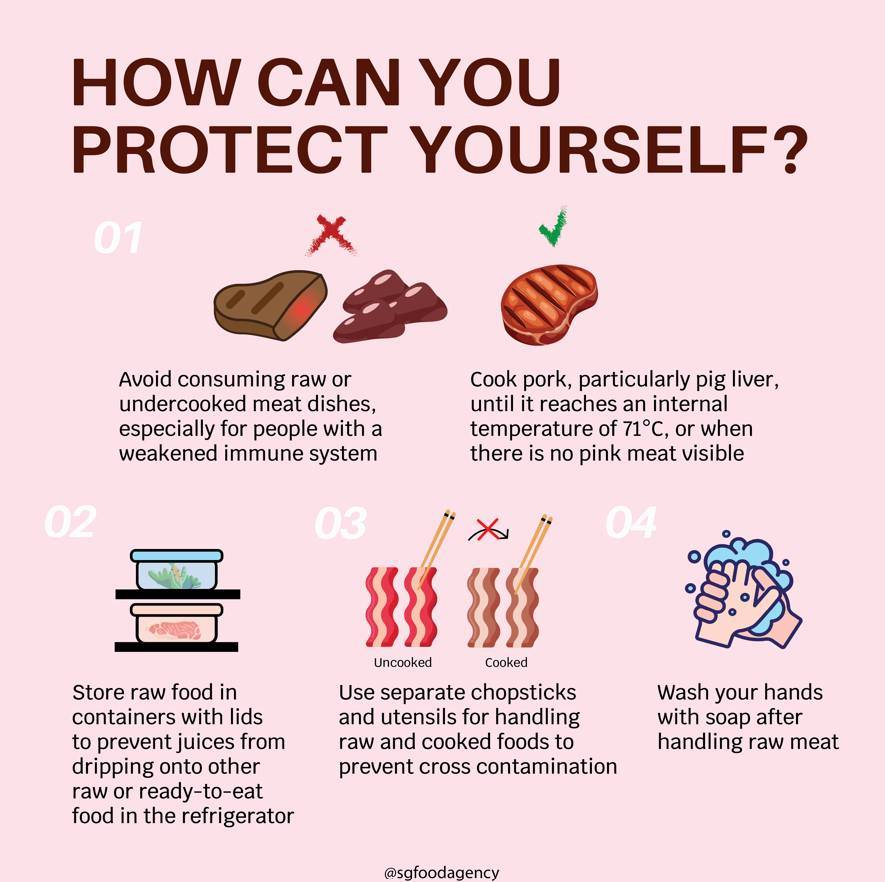The Singapore Food Agency (SFA) recently issued a warning about the dangers of Hepatitis E, a viral infection that affects the liver.
While Hepatitis E is less well-known than other forms of Hepatitis, it is a growing concern globally, with cases on the rise. In this article, we will explore what Hepatitis E is, how it is transmitted, and what the risks are for those who contract the virus.
What Is Hepatitis E?
Hepatitis E is a viral infection that affects the liver. The virus responsible for Hepatitis E is known as HEV, and it is primarily transmitted through the consumption of contaminated water or food. It is especially common in Singapore with uncooked or undercooked meat and off cuts. In many cases, Hepatitis E is a self-limiting disease, meaning that it will resolve on its own without treatment. However, in some cases, the infection can lead to serious complications, particularly in pregnant women and people with pre-existing liver disease.

How Is Hepatitis E Transmitted?
It is primarily transmitted through the consumption of contaminated water or food. In areas with poor sanitation, the virus can be present in the feces of infected individuals, which can then contaminate water supplies and food. In addition to contaminated water and food, the disease can also be transmitted through blood transfusions and organ transplants, although these modes of transmission are relatively rare.

What Are the Risks?
For most people, this is a self-limiting disease that will resolve on its own without treatment. However, in some cases, the infection can lead to serious complications. Pregnant women, in particular, are at risk of developing severe complications from Hepatitis E. In pregnant women, having this disease can lead to a high rate of fetal mortality, with up to 20% of cases resulting in stillbirths. In addition to pregnant women, people with pre-existing liver disease are also at increased risk of developing serious complications if contracted.
Symptoms
The symptoms of Hepatitis E are similar to those of other forms of Hepatitis. They include fatigue, nausea, abdominal pain, and jaundice. However, the symptoms of Hepatitis E are generally milder than those of other forms of Hepatitis, and the infection is often asymptomatic. In pregnant women, symptoms may be more severe, and the infection may lead to serious complications.

Prevention
The best way to prevent this infection is to practice good hygiene and sanitation. This includes washing your hands regularly with soap and water, particularly before handling food or eating. Also, avoid drinking water from unknown sources. In addition to these measures, there are also vaccines available, although they are not widely available in all countries.

Conclusion
Hepatitis E is a growing concern globally. Therefore, the recent warning fromSingapore Food Agency highlights the importance of understanding the risks involved with this viral infection. While most cases of Hepatitis E are self-limiting, the infection can lead to serious complications. Moreover, it is dangerous for pregnant women and people with pre-existing liver disease. The best way to prevent Hepatitis E is to practice good hygiene and sanitation, and in some cases, vaccines may also be available. By taking these steps, we can work together to reduce the spread of Hepatitis E and protect ourselves and our communities from this dangerous infection.

